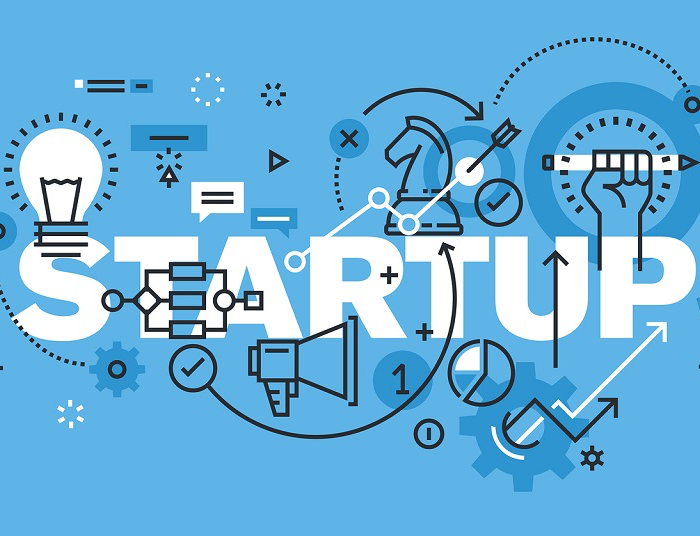
Startup — what is the best project to launch?
Startups are new and innovative companies. Each tech startup has different features and characteristics, but they are usually divided into two main types: B2C and B2B. Understanding the characteristics will help you choose tech startup ideas.
B2C
A B2C startup, also known as a business-to-consumer startup, is a company that provides products or services directly to individual consumers. Some of the features that characterize B2C startups include:
- Consumer-focused: B2C startups prioritize the needs and preferences of individual consumers, and their products or services are tailored to meet those needs.
- High volume and low value transactions: B2C startups typically generate a large volume of transactions, but the value of each transaction is relatively low.
- Online presence: Most B2C startups operate online and leverage digital channels such as social media, email marketing, and search engine optimization to reach and engage with their target audience.
- Branding and marketing: B2C startups invest heavily in branding and marketing to differentiate themselves from competitors and build a loyal customer base.
B2C startup classification
There are several ways to classify B2C startups, including by industry, business model, and customer segment. Here are a few examples of B2C startup categories:
- E-commerce: Online marketplaces like Amazon and Alibaba, fashion and beauty retailers like Sephora and Zara, and subscription box services like Birchbox and Dollar Shave Club.
- Sharing economy: Companies like Airbnb and Uber that facilitate peer-to-peer sharing of goods and services.
- Food delivery and meal kit services: Companies like Grubhub and Blue Apron that deliver food and meal kits directly to consumers.
- Health and wellness: Companies like Peloton and Fitbit that provide fitness equipment and tracking tools to consumers.
- Personal finance: Companies like Robinhood and Venmo that offer financial products and services to individual consumers.

B2C startup ideas
If you’re considering launching a B2C startup, there are many potential ideas to explore. For instance:
- Personalized nutrition and meal planning services could be developed using data and algorithms to create customized meal plans based on individual health and dietary needs.
- Virtual personal shopping services could provide personalized styling and product recommendations to online shoppers through video chat or AI-powered chatbots.
- Alternatively, a B2C startup could focus on creating affordable and high-quality home fitness equipment and virtual workout classes to cater to consumers who prefer to exercise at home.
- Other ideas could include sustainable and ethical fashion lines or mental health and wellness apps that offer resources, therapy, and support to individuals.
B2C startups tend to have lower success rates compared to B2B startups. They face intense competition as they target a wider consumer base, which requires significant marketing and advertising efforts. B2C startups also need to be innovative and adaptable to stay ahead of changing consumer preferences and emerging technologies. Despite these challenges, there are still successful B2C startups in various industries, and their success depends on factors such as product quality, differentiation from competitors, and effective marketing strategies.
Let’s shift our focus to another type of startup that operates in a different market segment – B2B – and has its own set of unique advantages and challenges.
B2B
This is a company that creates and sells products or services to other companies. Focuses on the business rather than the consumer like a B2C tech startup.
It can offer a variety of products, including business software, cloud solutions, marketing and advertising, logistics and transportation services, financial services, and more.
Features:
- Business-oriented: work with other companies, which means they focus on the business and create products to improve business processes.
- High-volume sales: sell to companies rather than individual consumers, so sales volumes are usually higher.
- Long-term relationships with customers: work for long-term relationships with customers, allowing them to grow their business and build long-term relationships with partners.
- Complexity of products and services: B2B can be more complex than B2C, as they are designed to be used in an environment and must meet the high demands of companies.
- Competitive environment: Competition can be very intense, so companies must provide unique and innovative products to attract and keep their customers.
- Have great potential for growth and success because they can work with multiple companies.
The prospects for startup development depend on many factors, such as the level of innovation, market size, competition, financial resources, team qualifications, and others. Having a unique and innovative project can significantly increase the chances of success, as it can attract a lot of interest from potential customers and investors.

How B2B companies are classified
Companies can be classified according to various criteria, such as industry, size, target audience, and the type of product they offer. The following are the main classifications:
- Industry classification: can operate in a variety of industries such as information technology, manufacturing, finance, logistics, medical, and more. Companies in the same industry may have similar needs and problems, so they may offer products specialized to the needs of that industry.
- Company size: can be small, medium, or large. Small B2B companies may offer a more personalized approach to customers, while larger companies may provide a broader range of products, and services as well as a higher level of customer support.
- Audiences: can work with a variety of audiences, including small businesses, large corporations, and government agencies. Each target audience may have different characteristics and needs, so B2B companies can tailor their products and services to meet the needs of a specific target audience.
- Type of product or service: may offer a variety of products such as software, hardware, logistics services, risk management and more. Each type of product may require different sales and marketing approaches.
- Regional classification: can work in different regions and countries. Each region may have different cultural, economic and legal characteristics, so can tailor their products to the needs of a particular region.
Ideas for a B2B tech startup
If you are planning a B2B tech startup, here are a few ideas that may help you:
- Project management: Develop a project management app that allows users to create and manage tasks, share files and communicate within the team. Such an app would be especially useful for companies dealing with a variety of projects.
- Task Management: A platform that will help users manage their tasks, priorities and deadlines. This application can be useful for managers and employees of companies of any size.
- Sales management: a system that will allow companies to manage their sales, track leads and create sales reports. Such an application will be useful for companies involved in sales and marketing.
- Resource Management: An application that allows companies to manage their resources, such as people, equipment and materials. Such an application can help companies increase the efficiency of their resources and reduce costs.
- Warehouse Management: A platform that will allow companies to manage their inventory, track shipments, and manage logistics. This application can be especially useful for companies involved in sales and manufacturing.
- Financial Management: A project that will help companies manage their finances, create budgets, track expenses, and create reports. Such an app can be useful for companies of all sizes.
- Human Resources Management: A tool to help companies manage their staff, create work schedules, manage vacations and bonuses. Such an app can be useful for HR and HR management companies.
Why go with a reliable agency when developing a tech startup
Developing a tech startup is a complex and multifaceted process that requires certain knowledge and skills. If you are not an experienced developer or don’t have a team that can handle all the tasks involved in creating a tech startup, then going to a reliable agency might be a good idea.
A reliable agency will be able to provide you with experienced professionals to work on your project. These professionals have extensive experience in developing and testing applications, which will allow them to create a quality and reliable product.
Also, the agency can give you access to best practices and tools that will help you create a product that will meet market requirements and your needs.
Also, by contacting the agency, you can get a professional approach to the development and technical support of your product. This means that if there are any problems or errors, you will be able to quickly and easily contact specialists who can solve these problems.
Finally, working with a reliable agency can save you time and money because you won’t have to waste time finding and hiring specialists, the agency will take on that responsibility.
In general, going to a reliable agency can be a good idea if you don’t have enough experience and resources to develop a tech startup on your own. It is important to choose an agency that has experience in developing such applications and can provide you with a high-quality product.











